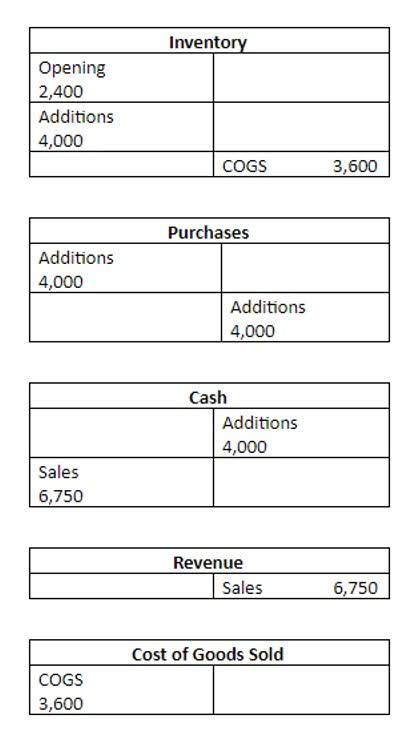
And because blockchain is decentralised, there’s no risk that practices would lose the information should a single organisation or operator fail. The ledger is transparent, so auditors can quickly establish whether a transaction is legitimate. And the use of cryptographic keys – which lock and unlock data – helps to keep blockchain records safe and secure. The move to a financial system with a significant blockchain element offers many opportunities for the accountancy profession. Accountants are seen as experts in record keeping, application of complex rules, business logic and standards setting. They have the opportunity to guide and influence how blockchain is embedded and used in the future, and to develop blockchain-led solutions and services.
How is Blockchain related to Accounting?
- Accountants will likely transition from traditional bookkeeping roles to more strategic positions, where they can leverage blockchain technology to provide deeper insights and drive business growth.
- Stay up to date with practical guidance to help you mitigate these risks and strengthen your security posture.
- Long before the arrival of blockchain technology, Ian Grigg and others suggested triple entry accounting as the solution to these challenges.
- Blockchain’s immutable nature comes from the fact that once a public consensus validates a transaction into the blockchain, it’s virtually impossible to alter or delete the transaction.
- Blockchain offers a decentralized and tamper-proof ledger that can end these concerns.
- Blockchain’s impact on accounting also translates to the work that auditors perform.
Provide training sessions and workshops or invite experts to speak about the benefits and challenges of integrating blockchain into your firm’s operations. This will help equip your staff with relevant skills and knowledge to leverage technology effectively. Blockchain can be used to verify the identity of individuals and entities, ensuring that only authorized parties can access sensitive financial information or perform transactions.
- In accounting, this means that certain financial transactions can be programmed to trigger automatic entries or actions, reducing manual intervention and potential errors.
- The article analyzes what is blockchain used for in accounting and its benefits.
- It’s immutability and decentralized nature make it unique, but its function of recording transactions makes it familiar to those in the accountancy profession.
- Explore how blockchain operating systems transform accounting practices, enhancing transparency, efficiency, and accuracy in financial transactions.
- With the World Wide Web, the first websites were rudimentary, but now are deeply embedded in daily lives and economies.
- With blockchain in accounting, financial information can be recorded in real-time and accessed by authorized parties instantly.
- By providing access to current financial information, companies can foster trust and confidence, strengthen relationships, and secure favorable financing terms.
Case Study: Blockchain for Financial Transactions
Some signs suggest that the accounting profession is welcoming this technology. However, it is still not evident how blockchain can impact the accounting profession. The automation capabilities of blockchain can lead to substantial cost savings and efficiency improvements. Smart contracts can automate routine accounting tasks, reducing the need for manual intervention and allowing accountants to focus on more strategic activities. This not only optimizes resource allocation but also minimizes human error.
Real-time transaction recording and verification
- Another challenge is the integration of blockchain with existing accounting systems.
- Blockchain technology provides enhanced security, transparency, and accuracy in financial tracking and reporting.
- However, as organizations and regulators continue to explore and understand the technology, the future of blockchain in accounting looks promising.
- Because of the potential impacts blockchain and triple entry accounting could bring to the industry, the accounting industry might have to adapt.
Blockchain’s transparency allows for real-time auditing and monitoring of transactions. This continuous oversight minimizes the potential for errors and discrepancies, ensuring that all financial activities are accurately recorded. As a result, blockchain technology fosters a more secure and trustworthy accounting environment. Blockchain is a powerful tool against financial fraud, offering a secure and transparent method of recording transactions. Its decentralized structure ensures no single party controls the data, making it resistant to tampering. This is particularly effective in preventing fraud such as double spending, where the same asset is used more than once.
This level of immutability is why blockchain technology is commonly referred to as a “trust machine”. We’ll likely see https://www.bookstime.com/ the technology streamlining transactions; through a combination of blockchain and smart contracts, payments will be settled faster, and will be easier to verify by auditors. The firm now offers strategic advisory, training and assisted prototyping for enterprise-ready blockchain solutions. These include a cross-border payment tool that facilitates payments without intermediaries, and a fraud detection solution that uses machine learning to spot anomalies and assign risk scores to transactions. Unlike a traditional ledger, blockchain isn’t owned by a single person or organisation (nor does it exist on a single computer).

Regulatory News
Although the middle man slows down transactions and adds fees for their services, they’re not all bad. The middle man plays a large role in protecting both parties in the exchange of assets from fraud. This is done securely using a consensus protocol, or a set of rules based on mutual agreement. This knowledge will empower you to make informed decisions about the future of your financial data management. Remember, even if you’re not gross vs net ready to fully embrace blockchain accounting yet, staying ahead of the curve can give you a significant edge when the time comes. The ongoing development of blockchain technology itself also holds exciting possibilities for blockchain in accounting.

Frequently Asked Questions Related to Blockchain for Accountants

CPAs will need to acquire a working knowledge of the blockchain and smart contracts to navigate in this new triple-entry accounting environment. This emerging and disruptive technology also promises to alter the accounting professional’s perspective, from transaction-focused to analytical. It ensures that transactions are recorded accurately in real-time, reduces the chances of errors, fraud, and data manipulation, and enables seamless auditing and compliance processes. Additionally, the decentralised nature of Blockchain Accounting promotes trust among participants, as they all have access to the same source of truth.
- This ledger is accessible to all participants within the network, eliminating the need for intermediaries and minimising the risk of data inconsistencies.
- For smaller firms, blockchain must prove capable in accounting, bookkeeping and tax and client services.
- This level of immutability is why blockchain technology is commonly referred to as a “trust machine”.
- Picture a world where regulatory frameworks embrace this technology, paving the way for wider adoption.
The Future of Blockchain in Accounting

These include the blockchain in accounting need for standardization, scalability, and regulatory compliance. However, as organizations and regulators continue to explore and understand the technology, the future of blockchain in accounting looks promising. The integration of smart contracts within blockchain systems can automate many accounting processes. These self-executing contracts will reduce the need for manual intervention, thereby decreasing the potential for human error and increasing efficiency.